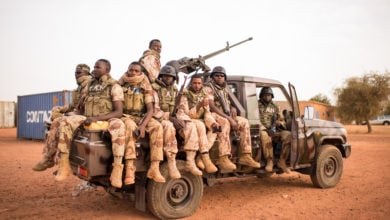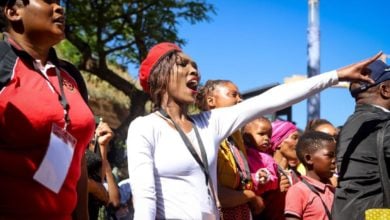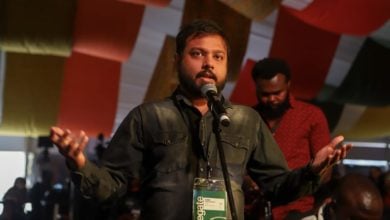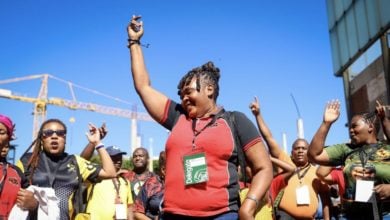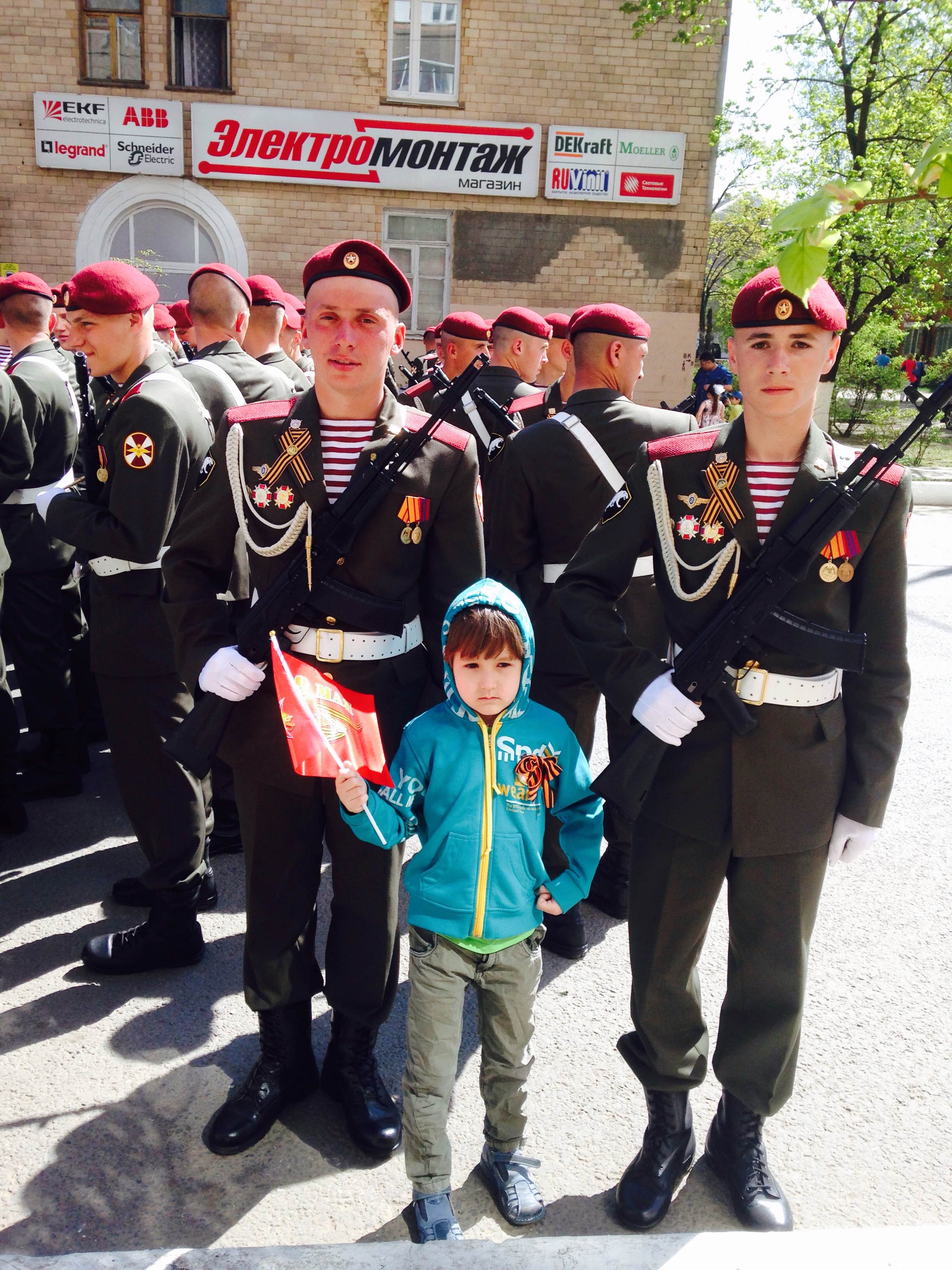
Editor’s note: We are republishing this article from 2015 in honor of the 75th anniversary of Victory Day.
This month, I had the tremendous honor of taking part in a Russian commemoration of the 70th anniversary of the Soviet victory in WWII. In addition to beautiful parades, fireworks and concerts, I was able to witness multitudes of people sharing with each other something wholly priceless: the gratitude of being alive thanks to those who fought fascism.
As a Russian person who takes pride in their Soviet heritage, I learned a great deal from others who share my history and sentiments.
I spoke with a number of WWII veterans in the city Zheleznodorozhny. They walked through the streets alongside all the other people who came to celebrate. While many veterans and active duty military members were present, WWII veterans were recognizable to all because of their age and the medals they wore.
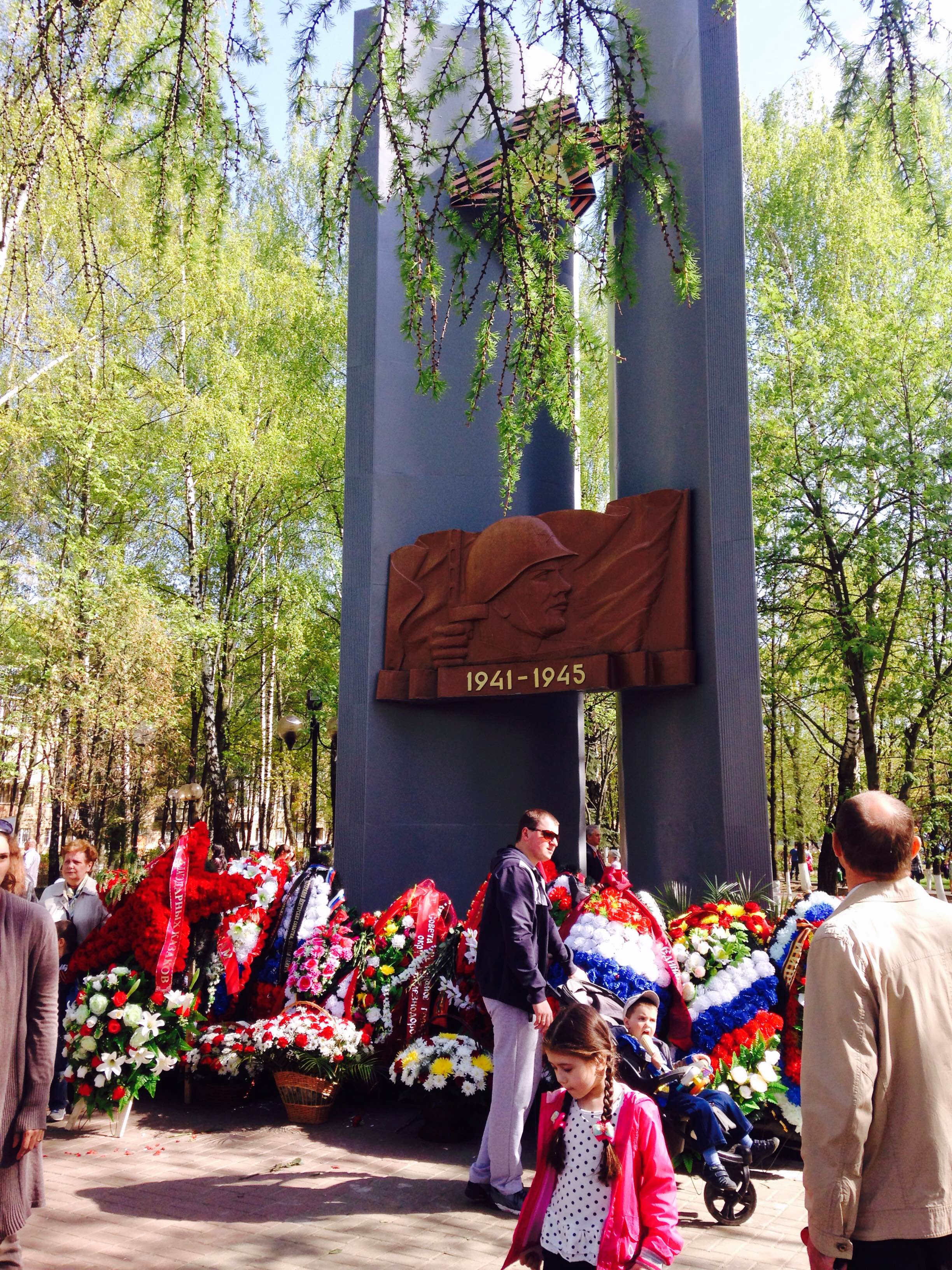
The event started with a march called the Immortal Regiment, which was held in cities all across the country. Thousands of people marched holding placards with photos of their family members and loved ones who had died in the war. They were followed by coordinated marches of children and active duty military members from Moscow.
After the march, people flocked to a Great Patriotic War monument to lay flowers at its base. Group after group of people came up, individuals and organizations announced by the chair of the event, until finally the entire enormous base of the monument was covered in flowers.
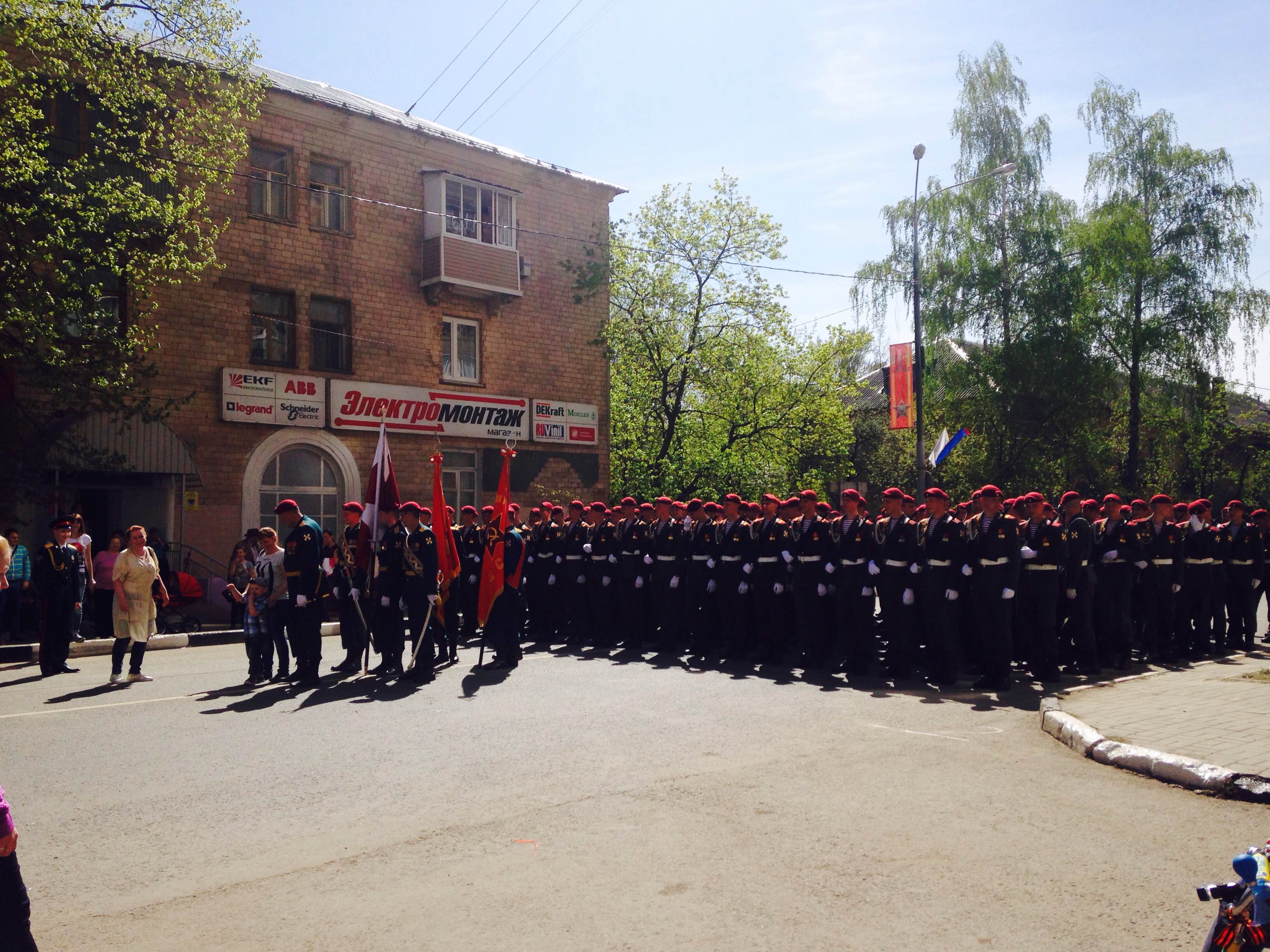
Afterwards, people walked in the park and wished each other a happy Victory Day. Complete strangers embraced and exchanged flowers. Most people had bought bouquets specifically to give out flowers to the WWII veterans who were there. By the end of their walk in the park, the veterans’ bags were loaded with flowers, gifts and candy. I helped an 84-year-old veteran carry her bags to the next event (a gigantic free dinner and concert for all) and heard her story.
“I feel 18. I will always be 18 in my mind,” she said happily as she received flowers from a toddler. She turned to me and continued, “I’ve been through three concentration camps. I was on the front too, but I remember the camps most. We need people to remember what we did, so that this tragedy doesn’t happen again. We need people to remember.”
I watched a group of young boys present an elderly veteran with flowers. He laughed happily, saluted them and told them this was their holiday as much as it was his — because they needed to learn and remember the great victory, and become heroes themselves.
I spoke to Dima Shatov, a 5-year-old who was very eager to give flowers to the veterans and learn about the war. I asked him what he would like to say to Americans who aren’t taught about the eastern front. “I would like to say that there really is such a holiday as May 9th, and I want them to know that it’s very important to us. Real soldiers fought in that war. Real soldiers died. So many people died so that the fascists didn’t win. They need to learn that.”
I asked Dima what he liked about the event, and he said “I liked seeing everyone giving gifts and flowers to the veterans and thanking them. I would like to be part of a march like that. I’ve already taken photos with veterans! And I would like to wish our veterans health and a long, happy life.”
When asked what he would like to tell people in the U.S. who think that Russian people are bad, Dima said without hesitation: “I think they need to check themselves and realize that they’re wrong. Our country, our world is full of kind people and if we can all share and love each other, we can be happy.”
Growing up constantly traveling between Russia and the U.S., I was always exposed to a painfully dishonest American version of history. In my history classes in the U.S., I was taught that “the United States and England won WWII, and some allies helped.” The Eastern front was never discussed. This was a source of immense dissonance for me because in Russian school and in my own family I had always learned about the sacrifice the people of the USSR made to overcome fascism. My own great-grandfather was a heroic partisan on the eastern front, and I did not know a single family who had not lost a loved one in the war.
One time, when I asked a teacher about the 27 million Soviet people whose lives were lost in the war, he replied that “American soldiers were better and managed not to die as much.” I received similar responses whenever I tried to raise the question of the Eastern front with American educators.
Russophobic propaganda was well rehearsed throughout the existence of the Soviet Union and is being easily picked up where it was left off now. I was always shamed for being Russian in the U.S.; shamed for being proud of our victory against fascism. I was kicked out of classrooms for stating that the U.S. waited to pick a side in the war and never really had anything against Nazism. Most immigrants from the former USSR are beaten over the head with an absurd theory of exceptional Western heroism in that war. But the beauty of the way people from the former USSR celebrate their victory is a rare, raw experience that, in the way it connects all families throughout Russia, blows that rotten imperialist revisionism to smithereens. The Russian people remember, and always will remember, the real cost of defeating fascism.
What is possibly most important is that people young and old are opening their eyes to the great feat achieved by the USSR thanks to its socialist structure. Despite the anti-Soviet propaganda dispersed throughout the former USSR and the world, the objective truth stands: it was a Soviet flag that flew victorious over the Reichstag. It was a socialist state, and proudly socialist people, that won that great victory. And so on May 9, 2015, flags with the hammer and sickle proudly flew over cities all over Russia, giving credit, honor and memory where it is due.


